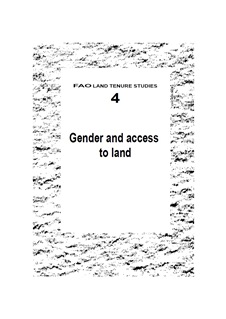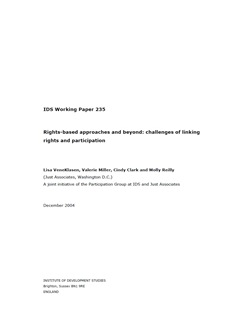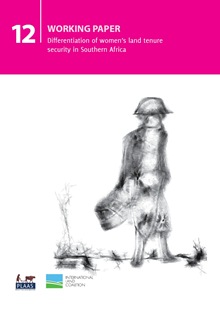Gender and access to land
This study stresses the importance of land for the rural poor as a source of livelihood and describes the gendered and often inequitable experience of access to land and other natural resources. It also provides a set of guidelines for actions to increase women's access to land, including awareness raising, and emphasises the need for better contextual udnerstanding of the gendered aspects in land allocation and adjudication. The report also provides suggestions for indicators of secure land access prior to, during and after programs of intervention.












